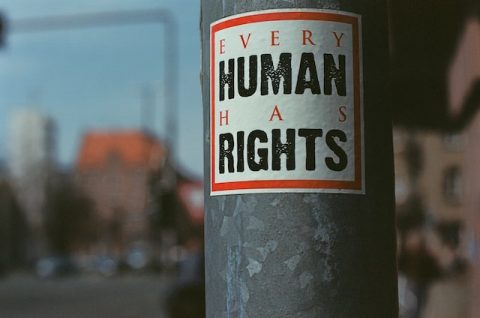
MEMORY VERSE: “And as they bound him with thongs, Paul said unto the centurion that stood by, Is it lawful for you to scourge a man that is a Roman, and uncondemned?” – Acts 22:25 (KJV)
BIBLE PASSAGE: Acts 16:22-24,35-39
LESSON INTRODUCTION: The United Nations (UN) defines human rights as rights inherent to all human beings, regardless of race, sex, nationality, ethnicity, language, religion, or any other status. As Christians, we must not just know the word of God but must be fully aware of what is available to us and others within the confines of the law that governs our society while we await our transition to Heaven (Hos.4:6). This lesson highlights some basic values and principles of human rights with biblical validation and confirmation and also points out the Christian’s role.
LESSON OUTLINES:
- BIBLICAL PERSPECTIVES
2. THE ROLE OF THE CHRISTIAN
- BIBLICAL PERSPECTIVES
Human rights include the right to life and liberty, freedom from slavery and torture, freedom of opinion and expression, the right to work and education, and many more. Everyone is entitled to these rights, without discrimination. Therefore, our rights, as Christians, include the fact that:
- All human beings are born free and equal in dignity and rights. They are endowed with reason and conscience and should act towards one another in a spirit of brotherhood. Therefore, all people in Christ are one and equal before God regardless of race, ethnicity, wealth, social class, status, and gender (Gen.1:27, Gal.3:26-28)
2.Everyone, including Christians, has the right to life, liberty and security of person. As Christians, we must guard this right and be concerned about the affirmation of life, liberty and the security of the oppressed so that every person may live life in its fullness (Lk.4:16-19, Gal.5:13-14).
3.Everyone (including Christians) has the right to recognition before the law everywhere (as a person), regardless of citizenship status (Acts 22:22-27).
4.Everyone (including Christians) is entitled in full equality to a fair and public hearing by an independent and impartial tribunal, in the determination of his rights and obligations and any criminal charge against him. Hence, every believer is entitled to a fair and just judicial process (Lk.18:2-5; Deut.1:15-18).
5.Everyone (including Christians) has the right to freedom of movement and residence within the borders of each State. Also, everyone has the right to leave any country, including his own, and to return to his country (Gen.12:1-3).
6.Everyone (including Christians) has the right to freedom of opinion and expression (Num.27:2-4).
7.Everyone (including Christians) has the right to freedom of peaceful assembly and association (Acts 2:1,44). Every aspect of civil society, including religious life, depends on these freedoms.
8.Everyone (including Christians) has the right to vote and be voted for. Irrespective of gender, we all have the right to play active roles in our nation’s political process (Deut.1:12-13; Acts 6:3).
9.Right to work. People (including Christians) have the right to choose their work rather than have their employment commanded. They deserve decent conditions of work, equal pay for equal work (thus no discrimination), a decent, living wage, and the right to organize and form trade unions (1Tim.5:18).
10.Right to rest and leisure: This is to protect workers’ rights (including Christians). No workday should be too long and periodic paid holidays should be available (Gen 2:1-3).
11.Right to education: Everyone (including Christians) is entitled to at least an elementary education. Parents may choose the type of school their children go to, but they do not have the right to deprive their children of education (Lk.2:46-47).
- THE ROLE OF THE CHRISTIAN
As a Christian, you should know your rights (Acts 22:25). Do not allow others to infringe on your right to live fully: avoid life-claiming/threatening situations and activities. With the guidance of the Holy Spirit (1Cor.12:7), engage in social impact activities as a ministry, call, career, or hobby to help others. (Isa.61:1-3). You may start or join an advocacy group to speak up for what you care about (Prov.31:8-9). Vocalize and challenge the violation of your rights (Acts 16:35-39). Stay connected with social movements and stand up against discrimination. Expose the culprit and publish your encounter if necessary. Avoid jungle justice. Allow a fair hearing. Promote equality and shun nepotism (partiality). Be ready to commit your time.
CONCLUSION: Christians must not fail to advocate for truth, respect and compassion for humanity, man’s equality before God, and love for neighbours (Zech.7:9-10).
